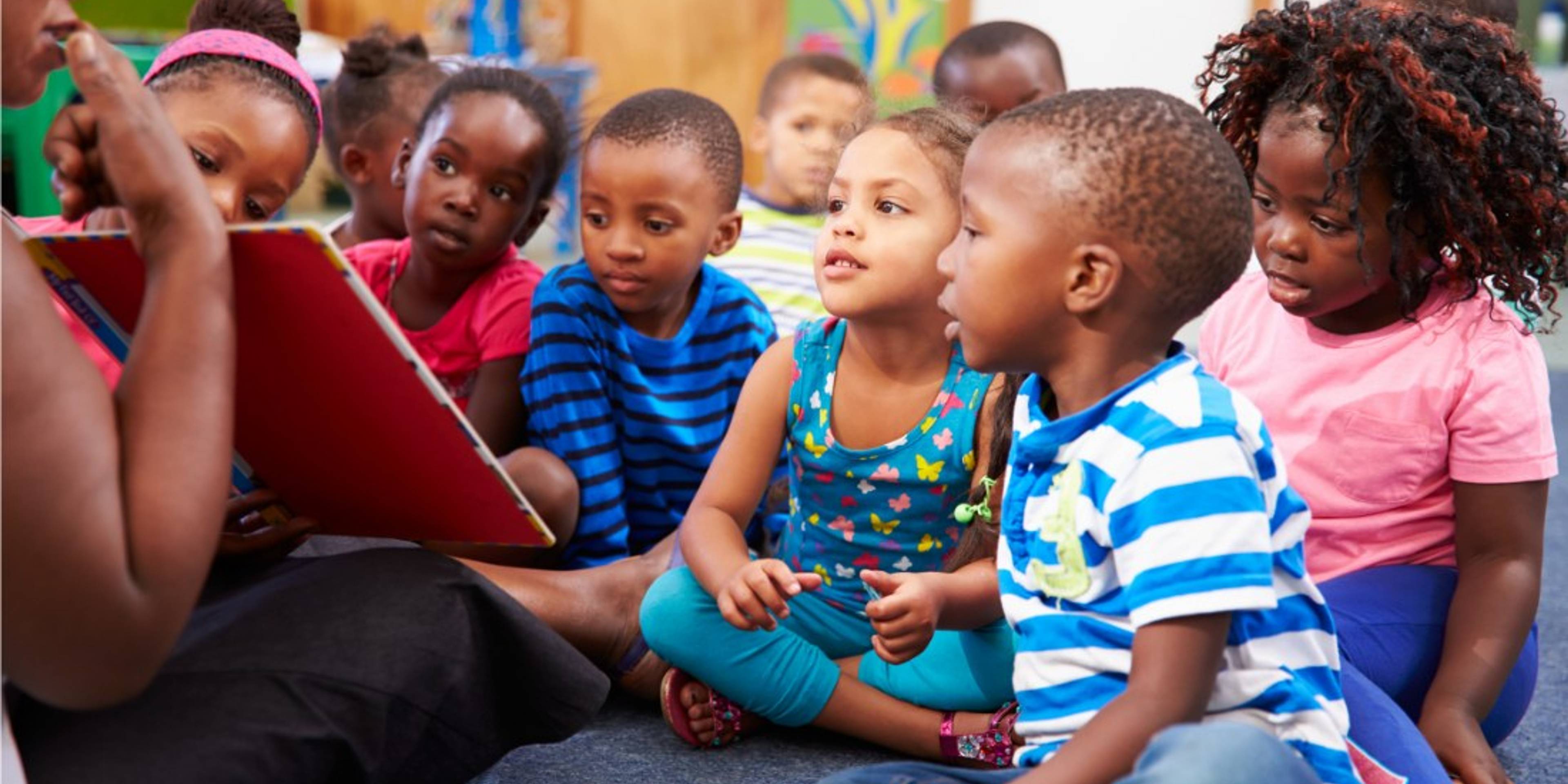May 16, 2024
"More is more”: the impact of careers education on later outcomes

Does school-based careers education, advice, information and guidance (CEAIG) have any influence on later life outcomes? A body of research has shown that careers education and activities can play an important role in helping young people to prepare for and navigate transitions into the world of work. It has also shown that the quality and quantity of provision can vary considerably, with those who are most socially disadvantaged experiencing the least and lowest quality provision. However, until now, the impact of careers education on later life outcomes has remained unclear.
A new paper written by Dr Julie Moote and colleagues seeks to find out what relationship there is between young people’s perceptions of the quality and quantity of school-based careers activities and education experienced at the age of 14–16 and their outcomes several years later, when they are 21–22. Findings are discussed in the light of recent legislation relating to careers support in England, which highlights how important it is to ensure that the needs of all young people transitioning into the workforce and adulthood are met.
Summary
Dr Moote and her colleagues conducted a large-scale postal survey of young people in England by obtaining a sample of young people born 1 September 1998 and 31 August 1999 who were registered on the Open Electoral Roll. The responses of 7,635 young people were included in the study. The questionnaire explored young people’s experiences, aspirations, expectations and influences, their general views on science and careers, extra-curricular activities, qualifications, attainment and socio-demographic factors. It also reported on measures of job satisfaction, income, and perspectives and confidence relating to future careers and work. The paper focuses on data that specifically relates to careers provision, which sought to establish young people’s perspectives on the careers education that they received at school and how helpful they found it.
The analysis showed that experiencing a greater number of careers advice and guidance activities at school significantly predicted more positive future prospects. The more activities that an individual reported taking part in, and the more activities they reported as being helpful, the more likely they were to report feeling confident and experiencing low levels of concern when thinking about their future employment or training. Young adults who recalled having a greater amount of careers guidance at school felt more confident about their future work prospects, felt better prepared for life and experienced greater life satisfaction, and those who were in employment felt happier and more satisfied with their jobs.
To contextualise this, Dr Moote found that the odds of young people reporting more positive future prospects were 85% higher if they recalled eight careers activities at age 14–16, compared to someone who reported zero. Good careers provision at school also predicted significantly increased odds of young people reporting being in education, training or work at the age of 21/22. School type also emerged as a significant predictor in feeling prepared for life, with independent school pupils having twice the odds of reporting preparedness compared to state comprehensive pupils, and 1.47 times higher odds than grammar school pupils.
Implications
“We are careful here not to overstate the implications of the findings. However, while we cannot claim causality of the results… this work documents the long-term value and potential positive influence of these CEAIG activities on outcomes reported later in life… These results show that the more we do for young people (i.e. the more supportive development activities we support/encourage them to participant in) and the higher the quality of the activities we provide for them is (i.e. the more helpful they report finding the activities), the stronger the relationships might be to the adult outcomes.”
Implications for schools
Dr Moote advises all schools to consider the Gatsby Benchmarks when developing an authentic, contextualised and personalised careers programme. Defined in a detailed report, these eight benchmarks outline best practice in careers education and scaffold the structure of provision within schools. They have really helped in the move towards standardisation of careers provision and in keeping individual settings more accountable.
Start early. The younger we begin to talk to children about the different kinds of jobs available to them, the better. Primary teachers might consider using The LOUD! Network’s free resources. They contain videos and follow up activities which relate curriculum based content to specific careers.
Monitor and measure. The majority of careers education is offered on a self-referral system. This could potentially disadvantage those that might benefit from it the most, as it relies on students to understand the kind of support that they need, actively seek it and opt-in to do it. Schools should monitor and measure uptake, notice patterns and evaluate the strategies that are being used in order to check that careers programmes and activities are reaching the widest possible number of students. Reflect on the structure used within your setting and, if you use a self-referral system, evaluate whether it is working and what implications it has.
Implications for parents
Have dinnertime discussions. Make time to talk about different careers and potential future prospects, and make conversations about science part of your everyday life. Dinnertime chats are known to have a significant positive impact on how children feel about themselves and their academic capabilities.
Make the most of your contacts. Work experience is often organised by parents. This is brilliant in families with strong professional relationships and contacts, but far more challenging for those with less access. Make the most of your strengths and tap into your support network for help if you need it.
Be open to your children’s opinions and interests, and be curious about the things that fascinate them. It’s important to put our own views and feelings aside when talking about careers with our children. To help them have a fulfilling career, we need to understand what they want and what would be the best option for them, rather than projecting our own motivations onto them.
In relation to STEM, help children understand that science is transferable and is for everyone. A STEM qualification can open many doors and provide many opportunities. People with STEM qualifications are less likely to be employed below their skill level and there is a real need for skilled people in the STEM sphere.
Check out Talking Futures. This online resource is designed to help parents have informed and constructive conversations with children about the different training and education pathways available to them.

Dr Julie Moote
Freelance research and evaluation consultant.
Dr Julie Moote started out as a science teacher, but has been an academic researcher for a decade and is now a freelance research and evaluation consultant. Her most significant project has been the ASPIRES investigation. ASPIRES was a huge longitudinal study which followed a cohort of students over a 13 year period – from primary school leavers, through to university graduates and young people transitioning into the world of work – investigating how their aspirations for education, and then work, in STEM-related disciplines formed and developed over time. The findings of this project have been reported to Parliament and are informing government policies on how to encourage more young people to get into STEM careers. Broadening the pursuit of STEM is one of Julie’s main passions – particularly making STEM a safer and more inclusive space for people of all backgrounds and characteristics. And she is also very interested in how inquiry-based learning programmes can help to inspire budding scientists.
Dr Julie Moote
Freelance research and evaluation consultant.
Scroll our research gallery

Mar 17, 2025
Fostering a school culture against bullying: the KiVa Programme
Bullying is an extremely important public mental health risk. Around one in five primary school children report being bullied at least weekly. Children who are bullied are more likely to experience depression and anxiety, and are at heightened risk of mental health issues in adolescence and adulthood. Whilst schools in England and Wales are required to have anti-bullying policies, rates of bullying remain high. Bullying is preventable, but schools need more help to tackle it. Typically, school policies focus on how to handle bullying once it happens. However, evidence suggests that a comprehensive approach involving the entire school to prevent bullying, alongside clear strategies for addressing confirmed cases, is the most effective way to tackle the issue. KiVa is one such whole-school approach, developed in Finland by Professor Christina Samivalli. A large study in Finland which involved 28,000 primary school pupils found that adopting the KiVa programme in Finnish schools significantly reduced bullying and improved children's mental wellbeing. The programme has since been rolled out nationally by the Finnish government and ongoing use of KiVa in Finnish schools is associated with year-on-year incremental reductions in bullying. Along with colleagues, our researcher of the month, Professor Judy Hutchings OBE, has tested the effectiveness of the KiVa Programme in UK primary schools. The study involved over 11,000 children in Wales, Birmingham, Oxfordshire and Devon, and showed a 13% reduction in reported rates of bullying when compared with existing school approaches to tackle bullying.

Feb 12, 2025
When is the right age? Searching for age-appropriate ways to support children's online lives
Currently, children's and young people’s use of digital technology is rarely out of the news. Age limits are debated. Calls for stronger limits are made, and questions are raised regarding whether society should ban 'under-age' children from various aspects of the digital world. 13 years of age is often cited as a digital 'age of consent', though this varies in some countries. Commonly used age limits are largely arbitrary, based primarily on US legislation, rather than evidence. In a recent paper, our researcher of the month, Dr Kim Sylwander, and her co-author Professor Sonia Livingstone, consider age milestones and evaluate whether or not the evidence supports them. Are age limits the optimal way to regulate children’s digital experiences? Does it matter that they are widely contested and often poorly implemented? And are common boundaries even the “right” age, according to evidence from the field of children and digital media? Dr Sylwander persuasively argues that moving forward, a developmental approach can better support children’s rights.

Jan 14, 2025
Showing faith and trust in children nurtures integrity
A new study which explores the development of trust and integrity in children has found that expressing trust in young children encourages them to behave honesty. The research team, including our researcher of the month, Professor Li Zhao, studied whether children were less likely to cheat in a simple test of counting accuracy if the adult administering the test had previously conveyed trust in them. They found that children who were trusted cheated less than those who were not trusted. These findings provide novel evidence about the causal effect of trust on the development of children's honesty.

Dec 17, 2024
Intrinsic reward and word learning
From infancy onwards, humans display an innate motivation to acquire language and to communicate. We start acquiring words as babies and continue to do so throughout our lives. In fact, children are thought to learn over 3000 new words each year. However, relatively little work has focused on why we are motivated to learn words, particularly when it comes to adolescents. Adolescence is a period of great neurological change and sensitivity to learning. It's also marked by changes in reading behaviours. Whilst children become skilled readers between the ages of 10 and 18, this period is also associated with motivational changes in reading, with teens frequently showing a disinclination to read for pleasure. This change often coincides with the transition from primary to secondary school. Policy makers are keen to motivate adolescents to read for pleasure, arguing that it would improve not just literacy outcomes, but also result in substantial economic and societal benefit. Recent research has shown that adults find learning words to be intrinsically rewarding, and that this intrinsic reward facilitates the entrance of new words into long-term memory. Our researchers of the month, Professor Saloni Krishnan and Professor Pablo Ripollés, set out to establish whether the same is true for children and teens.

Nov 14, 2024
Delivering effective menstrual education
Research has shown that menstruation and menstrual cycle symptoms can be disruptive and detrimental to physical, mental and social wellbeing. As many as 93% of teen girls experience dysmenorrhea (severe cramps) and girls with a typical cycle experience 11 menstrual cycle-related symptoms on average, potentially including mood changes, stomach cramps and increased levels of anxiety and fatigue. Adolescents with problematic symptoms have reported a negative impact on school attendance, behaviour, confidence around peers and participation in physical activity. In the United Kingdom, evidence suggests that menstrual health education delivered by teachers generally focuses on menstrual cycle biology, as opposed to management of menstruation and menstrual cycle related symptoms. Our latest researcher of the month, Dr Natalie Brown, set out to understand young people’s perceptions of menstrual education in schools and their experiences of menstruating whilst at school, including within physical education. Her study involved nine focus groups with 10-15 year old female pupils attending primary and secondary schools across England and Wales. Pupils highlighted that, in their experience, menstrual education is limited and noted that the menstrual cycle impacts negatively on their school experience, affecting participation in sport and school attendance generally. Participants highlighted a need for more support and information regarding understanding and managing periods in school.

Oct 17, 2024
How influential is social media on young people's mental health?
A significant body of evidence tells us that young people's mental health has decreased over time, and a potential link between social media use and this mental health decline has triggered wide interest and concern. Research into social media use and mental health is being conducted at a rapid pace but, so far, findings are far from conclusive. Our new Researcher of the Month, Dr Margarita Panayiotou, adds to this body of work. She led a team of researchers who recently published a study involving thousands of young people in the UK. It set out to explore the interplay between social media use and teens' mental health, wellbeing and social life, and found that when considering the complex combination of multiple factors, things such as a lack of family support are arguably more important for adolescent mental health than social media use.

Sep 16, 2024
How do young children’s relationships with parents and teachers impact their adjustment to school?
We already know that children's relationships with their parents and teachers contribute to their school adjustment and achievement, and that positive, close relationships with adults are really important for a wide variety of children’s outcomes. However, few studies have examined interactions between these relationships or sought to address the nuances of children’s experiences in terms of how different relationships have different impact or influence. To address this, along with colleagues, our new Researcher of the Month, Dr Caoimhe Dempsey, has recently published an article which aims to examine the links between children's relationships with their mothers, fathers and teachers, and three domains of school adjustment: academic achievement, academic self-concept and behavioural adjustment in the classroom. By examining a range of data, the researchers sought to find out whether some children are more susceptible to the effects of the quality of their relationship with their teacher.

Aug 19, 2024
Supporting children's transition to secondary school
Supporting children to successfully transition from primary to secondary or senior school is vitally important. It's a big life change, which can leave both parents and children feeling excited and nervous in equal measure. At Tooled Up, we often use the analogy of a journey for the transitional experience. In fact, anyone who has attended or watched a talk with our founder, Dr Kathy Weston, is likely to have heard her say that we'd all want our children to be well prepared for any journey they go on, and that, as loving parents and carers, we wouldn't dream of sending them off on any journey without the right equipment, mindset and strategies to reach their destination safely and securely. Transition to a new school is no different. Research shows that there are numerous holistic protective factors that can help to ease transition. Conversely, it's also the case that problems with successfully transitioning to secondary school and subsequent lower levels of school connectedness are associated with lower education outcomes, school drop-out, higher levels of depression and anxiety, and increased involvement in criminal, violent and antisocial behaviour. Research also shows that these difficulties may not be equal across different socio-demographic variables, with children from underserved communities (including those from minority ethnic backgrounds and lower socio-economic status) and children with behavioural difficulties facing greater challenges during the transition to secondary school. It's therefore important for all parents and educators to consider how to make this transition as seamless as possible. Along with her co-authors, our Researcher of the Month, Dr Aurelie Lange, has published a new paper which evaluates the efficacy of a new UK-based online intervention called Level Up. In it, Dr Lange seeks to explore families' experiences of facilitators and barriers to engagement and change.

Jul 15, 2024
The impact of digital experiences on teens with mental health vulnerabilities
Over the last decade, digital developments have led to major changes in the ways that teens learn, work, play and interact with others. Digital access is a daily reality for most children and young people. Nine in 10 children in the UK now own a smartphone by the time they reach the age of 11, and the large majority of children aged 11 now use social media (78%) and have a social media profile (72%), despite being younger than the minimum age requirement for many platforms. By the time teens are 17 years old, 97% will use social media. Coincident with this change, adolescent mental health problems have also increased in prevalence. It is therefore no surprise that much research has focused on the relationship between digital experiences and adolescent mental health. However, comparatively few studies have directly compared the experiences of teens with mental health conditions meaning that some key questions remain unanswered. Do adolescents with pre‐existing mental health conditions differ in terms of why and how they engage with the digital world compared to peers without such difficulties? Are specific mental health conditions linked to different patterns of digital usage? What role do such differences play in the development and escalation of these conditions? In a recent paper, our Researcher of the Month, Dr Kasia Kostyrka-Allchorne, and her colleagues, explore what the evidence shows about the digital experiences of teens with mental health vulnerabilities.

Jun 13, 2024
NELI Preschool: a new oral language enrichment programme for preschools and nurseries
Oral language skills provide the foundation for formal education, yet many children enter school with language weaknesses. Oral language is fundamental to children’s overall development and educational success. It is linked to all higher level cognitive skills and is pivotal for literacy development, and education more generally. It’s also vitally important for children’s social and emotional development. The term oral language refers to a complex set of skills that should ideally work seamlessly together to enable children to communicate with others by producing and understanding language. It’s an umbrella term, encompassing numerous component skills which include having a good vocabulary and the grammatical ability to combine words effectively to convey meaning, along with an understanding of cause and effect, memory skills and the ability to plan what to say and what not to say. Language skills develop rapidly between the ages of 3–6 years making preschool an excellent time to intervene to support language development. Because of this, Dr Gill West and her colleagues – as part of a team headed by Professor Charles Hulme – have developed and evaluated the efficacy of a new language enrichment programme, the Nuffield Early Language Intervention—Preschool (NELI Preschool), which is delivered to children the year before they enter formal education. The programme combines language enrichment for all children, with additional targeted support for those with language needs, potentially narrowing the gap in language skills associated with social disadvantage.



